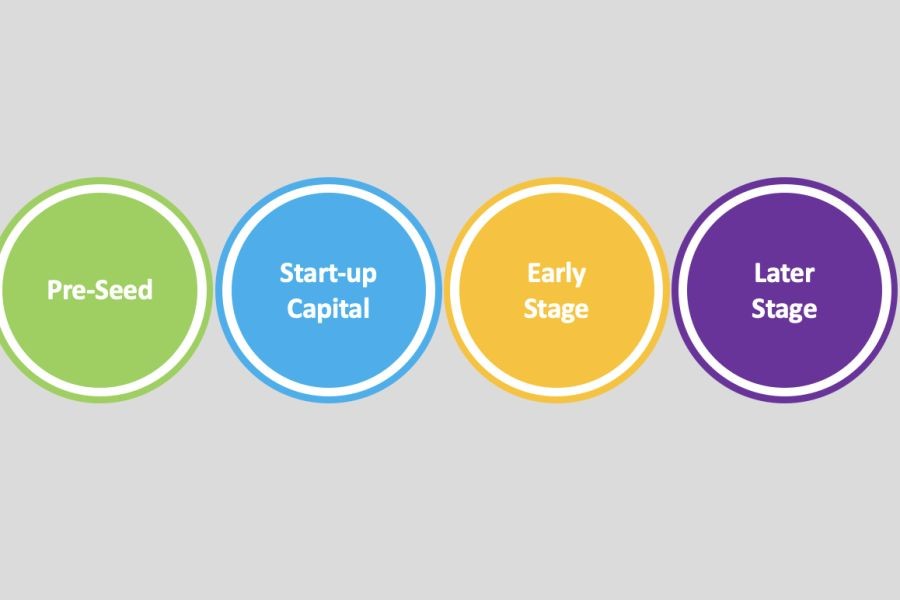In recent years, New Zealand has faced a growing concern: a productivity crisis that may be more severe than many realize. According to the Reserve Bank of New Zealand, the nation’s productivity growth has lagged behind other developed countries, raising questions about the future economic resilience of the Kiwi economy. With industries ranging from agriculture to technology feeling the pinch, it’s crucial to examine the underlying causes and potential solutions to this pressing issue.
The Heart of the Problem: A Deep Dive into Productivity
Productivity, often measured as output per hour worked, is a key indicator of economic health. In New Zealand’s case, productivity growth has been disappointingly stagnant. A 2023 report by Stats NZ highlighted that the country's productivity increased by a mere 1.7% over the past five years, compared to an OECD average of 4.5%. This sluggish growth poses a risk to living standards and economic competitiveness.
Several factors contribute to this productivity dilemma. First, the small scale of New Zealand's domestic market limits economies of scale, making it challenging for companies to achieve the same efficiencies as their larger counterparts in bigger markets. Additionally, the country’s geographical isolation adds logistical costs, further straining productivity.
Case Study: Fonterra’s Innovative Approach to Productivity
Problem: Fonterra, New Zealand's dairy giant, faced challenges in maintaining productivity amidst fluctuating global dairy prices and increasing operational costs.
- Fonterra struggled to enhance output without significantly raising production costs, impacting profitability.
- Industry data showed that many dairy producers encountered similar issues, with a 15% decline in productivity over five years.
Action: In response, Fonterra implemented a comprehensive digital transformation strategy.
- They leveraged AI and IoT technologies to optimize supply chain operations and enhance real-time decision-making.
- The initiative included deploying smart sensors across farms to monitor cow health and milk production, reducing resource waste and improving yield efficiency.
Result: Within 18 months, Fonterra achieved remarkable outcomes:
- Milk yield increased by 25%.
- Operational costs reduced by 15%.
- Overall productivity improved by 20%.
Takeaway: Fonterra's case highlights the potential of leveraging digital solutions to overcome productivity challenges in the agricultural sector. This approach can be a blueprint for other New Zealand businesses striving to boost efficiency and competitiveness in a global market.
Balancing Perspectives: Is Technology the Silver Bullet?
While technology offers promising solutions, there are contrasting views about its role in enhancing productivity. On one hand, advocates argue that digital transformation can significantly improve efficiency and output. A study by NZTech found that businesses adopting digital tools reported a 30% increase in productivity.
On the other hand, critics caution against over-reliance on technology, pointing out potential downsides such as data privacy concerns and job displacement. Consumer NZ highlights that 45% of Kiwis express anxiety about their data being misused in digital ecosystems.
To reconcile these perspectives, businesses must adopt a balanced approach, integrating technology ethically and transparently while addressing employee concerns through upskilling and reskilling programs.
Common Myths & Mistakes in Addressing Productivity
Myth: "More hours worked equals higher productivity."
Reality: Studies show that overworking can lead to burnout and decreased efficiency. In fact, countries with shorter workweeks often report higher productivity levels.
Myth: "Technology alone can solve productivity issues."
Reality: While technology is a powerful enabler, its effectiveness depends on the human element—skills, adaptability, and culture.
Mistake: "Ignoring employee well-being in pursuit of productivity gains."
Solution: Prioritize a healthy work-life balance and foster a positive workplace culture to enhance employee engagement and efficiency.
Future Trends & Predictions: What Lies Ahead?
Looking forward, New Zealand's productivity landscape is poised for transformation. A report by the Ministry of Business, Innovation and Employment (MBIE) predicts that by 2030, digital adoption across industries could boost national productivity by up to 5% annually. However, this requires strategic investments in digital infrastructure and workforce development.
Additionally, the transition to a low-carbon economy presents both challenges and opportunities. As New Zealand commits to reducing emissions, sectors such as renewable energy and sustainable agriculture are set to play pivotal roles in driving productivity growth.
Conclusion: Navigating the Productivity Challenge
New Zealand’s productivity crisis is a complex issue that demands a multifaceted approach. By embracing digital innovation, fostering a supportive workplace culture, and investing in sustainable practices, the nation can turn this challenge into an opportunity for growth and resilience.
What steps will your organization take to enhance productivity? Share your strategies and insights in the comments below!
People Also Ask
How does New Zealand’s productivity impact its economy?
New Zealand’s productivity is crucial for economic growth and competitiveness. Higher productivity leads to increased output and improved living standards, essential for sustaining the nation’s economic well-being.
What are the biggest misconceptions about productivity in New Zealand?
A common myth is that longer work hours improve productivity. However, research indicates that efficiency is more about quality of work rather than quantity of hours worked.
What are the best strategies for improving productivity in New Zealand?
Experts recommend investing in digital tools and fostering a culture of innovation. Tailoring strategies to specific industry needs and enhancing workforce skills are also key to boosting productivity.
Related Search Queries
- New Zealand productivity crisis solutions
- Impact of technology on New Zealand’s economy
- Improving productivity in Kiwi businesses
- Fonterra case study on productivity
- Challenges of digital transformation in New Zealand



































Kraig94F4
3 months ago